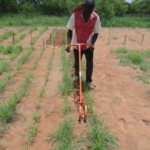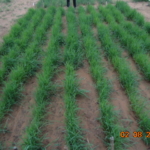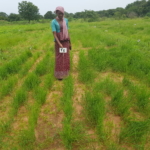


l'Institut d'Economie Rurale
ICRISAT
Burkina Faso Niger Mali
11/2010—11/2012
Fonio (Digitaria exilis) is a traditional cereal in West Africa, grown by women and men smallholder farmers either as food crop to reduce impacts of the hungry period, to diversify their own diets, or to sell as cash crop. In addition to its role in food security in many areas of Mali, Burkina Faso, and some parts of Niger, fonio is increasingly recognized for its nutritional value as well as an income source for farmers. Its contents of insulin-secreting amino acids (valine, leucine, isoleucine) is higher compared to other cereals such as rice, maize or millet, making fonio suitable for patients of some diseases like diabetes. Due to the small size of the seed (1 to 1.5 mm in length), processing fonio is a difficult and time-consuming task, especially for women, who have traditionally processed the grain. Some women’s groups process fonio into easy-to-cook products for local and urban markets.In Mali, neither improved varieties nor official agronomic recommendations exist to support farmers in their fonio cultivation. Therefore, this project targeting fonio production in Mali was initiated. In the initial project phase, a fonio germplasm collection was characterized, superior ecotypes were identified for different target zones, seed of these were multiplied, and promising agronomic practices were tested.
Fonio Phase I:
Establish, characterize and maintain a Malian national collection of fonio.
Identify potentially productive ecotypes with a low rate of shattering at maturity.
Identify by molecular characterization ecotypes for future use by plant breeders and food technologists.
Identify by culinary characterization ecotypes with a good hulling yields, better swelling ability and a good chewy texture of the grains after cooking.
Identify economically profitable mineral fertilization rates for fonio.
Establish in partnership with farmers a new place for fonio in crop rotations to increase yields.
Phase II:
Validate the results of the molecular characterization of ecotypes from Mali and characterize ecotypes from neighboring countries
Evaluate and multiply the best fonio ecotypes with women and men farmers. Official registration of higher-yielding, farmer-preferred fonio varieties (derived from existing “ecotypes”) for different agro-ecologies.
Determine the amount of urea fertilization, fonio planting density and timing of field works that would be economically most rentable in different contexts.
Evaluate the effect of incorporation of fonio residues on soil fertility and yield of the subsequent crop.
Identify via sensual testing fonio ecotypes that correspond to user’s taste preferences and initiate the women at the project intervention sites to preparation of new fonio dishes.
Strengthen the capacities of women and men fonio farmers in participatory variety selection, acquisition of a decorticating machine, and establishment of a discussion platform for farmers and fonio processing teams to enhance local market linkages.


